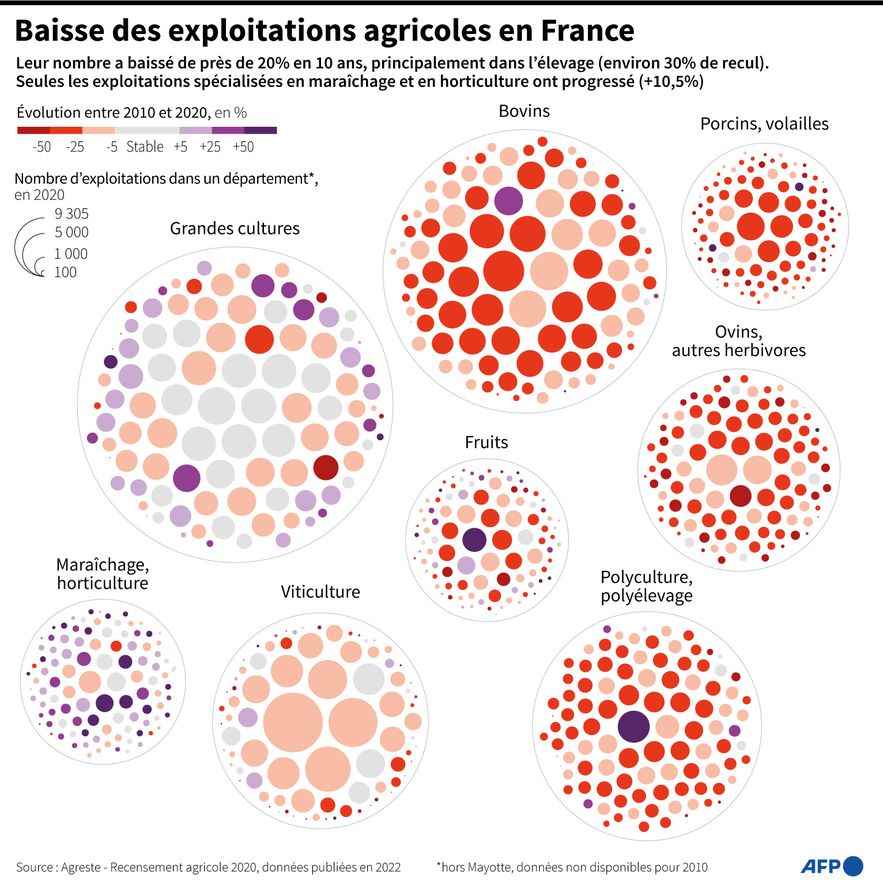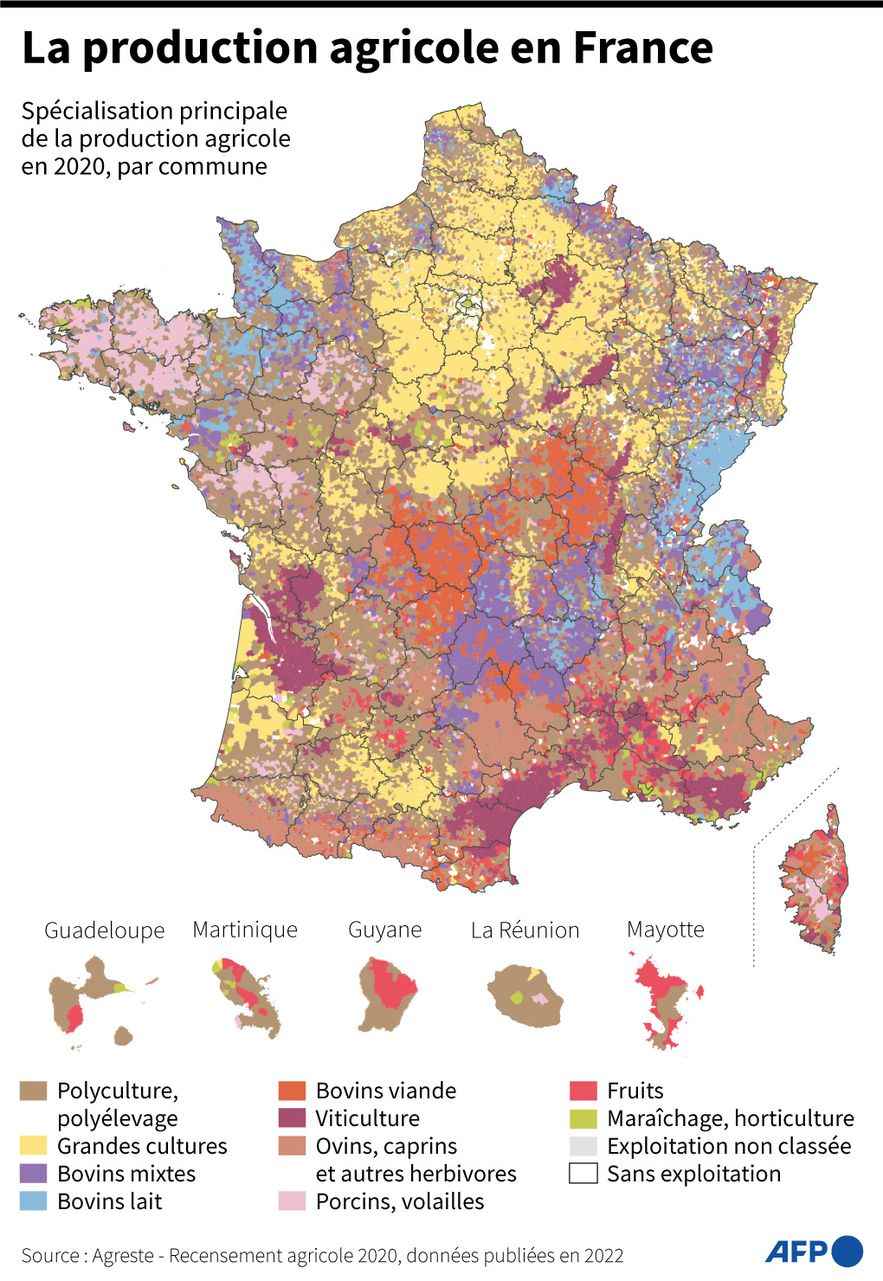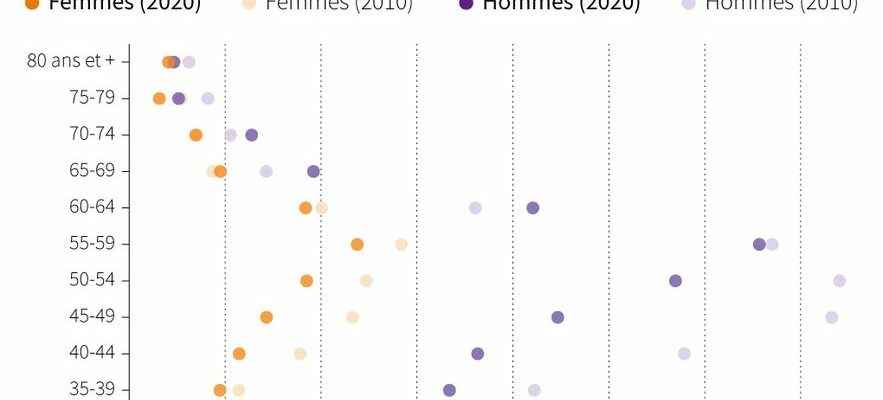While the new edition of the Agricultural Show begins this Saturday, February 25, in a context of inflation marked by the war in Ukraine, the last census of the agricultural world carried out in 2020 and published at the end of 2021 paints a portrait of a profession aging, but also increasingly qualified with more specialized productions. Overview in three infographics.
An aging and male population
French agriculture has never had so few young people in its ranks: only 20% of farmers are under 40 years old. The average age is 51.4 years.
Half of French farms are run by at least one farmer aged 55 or over, “who has already reached or will reach retirement age in the coming decade”, according to the agricultural census. And among those over 60, two-thirds have not sought or identified a buyer.
The feminization of the profession is still weak, even reduced, with fewer and fewer women farmers working on the farms. Currently, just over a quarter of farmers and co-farmers are women (26.2%), down slightly from 2010.
The age of farmers in France
© / test
Increasingly sparse farms
The number of farms has been divided by four in fifty years: there were more than 1.5 million in 1970, they are now less than 400,000. Livestock farming has been the most affected by this decline (approximately 30% of decline in 10 years). At the head of the farms, there are barely 500,000 farmers and co-farmers. The share of farmers in total employment therefore continues to decline: 1.5% of workers in 2021 compared to 7.1% forty years ago.
The profession points to difficulties in recruiting employees and seasonal workers. Hence the search for tools to increase productivity and be less dependent on labor, such as agricultural robots.

Decline in agricultural holdings in France
© / AFP
Stronger specialization
Farms combining crops and livestock – a model considered environmentally virtuous, animal waste fertilizing fields and meadows – are becoming rarer as farms and territories specialize. Only 11% of farms fall under this model, compared to 19% in 1988. Farms only producing crops have become the majority (52% in 2020 compared to 37% in 1988).

Agricultural production in France
© / AFP
Among recently established farmers (after 2010), 74% have completed a baccalaureate level education and 44% a higher education (against 48% and 22% respectively for farm managers of previous generations). These new farmers are more frequently organic than previous generations (19% of farms, compared to 10%).
